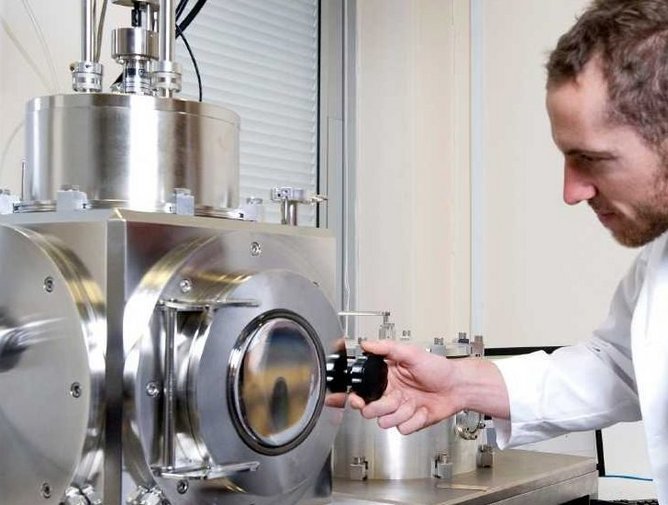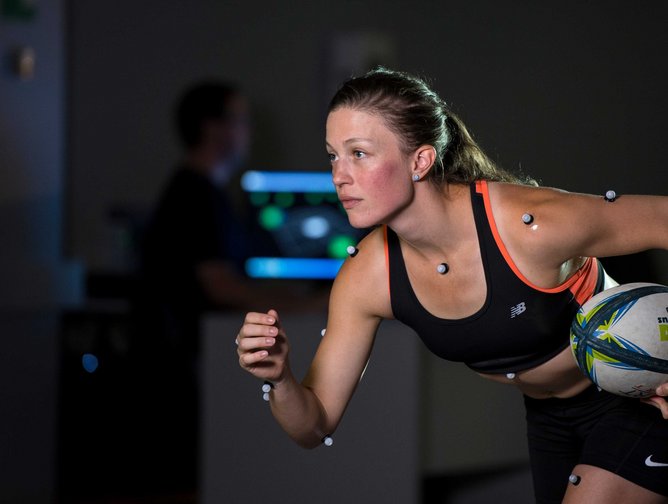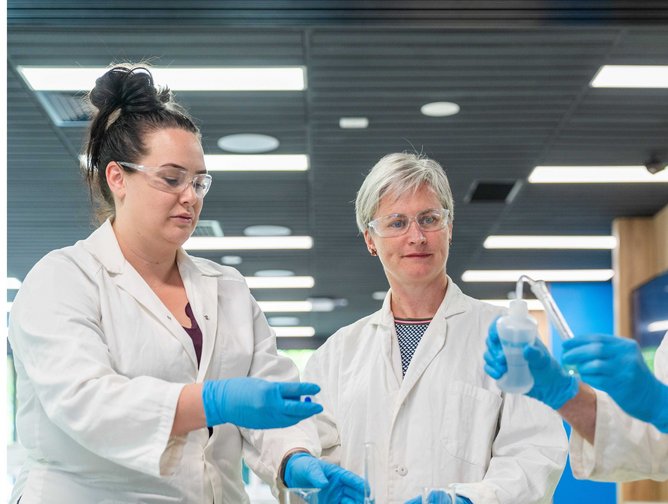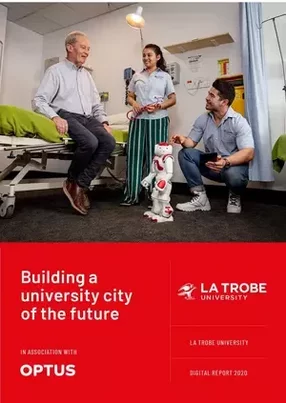How La Trobe University takes into consideration its digital needs as it expands its physical infrastructure
When it was first established in 1967, 552 students attended La Trobe University. Now, it has over 30,000 students from more than 100 countries and boasts a network of campuses across Northwest Victoria, in Australia. The La Trobe, in the top 1% of universities globally, mission statement, then and now, is to advance “knowledge and learning to shape the future of our students and communities.” Currently it’s enhancing that by developing a “University City of the Future”, growing its physical and digital infrastructures to support the needs of contemporary students and create more than 20,000 jobs over the next decade.
Peter Powell, the Chief Information Officer at La Trobe, joined its team over two years ago. He brought with him 18 years’ experience in the healthcare sector. During his time at private healthcare company Bupa, Powell watched the business grow from having no presence in Oceania to its ANZ group accounting for almost half of the global company’s revenue. “That helped me see how a business could scale and flourish in quite a challenging environment.” Powell says. His experience comes into play as La Trobe sets its sights on major growth over the next few years. Its Melbourne campus occupies 267 hectares, making it the largest metropolitan campus in Australia but, according to Powell, only around 20% of the land is built on. “Our long-term view is creating a University City of the Future,” Powell explains, “We want to build a number of precincts that would bring together students, partners, start-up’s, the community, and research capabilities.” It is currently in the final stages of completing its Sports Precinct, which has already attracted major and local sporting clubs, looking ahead building a Research and Innovation Precinct, to encourage start-ups and partners that collaborate with the University and support local business in the North of Melbourne. “As we build it out, we want to create an environment that is interconnected, secure and sustainable.” Powell explains. “That’s the business ambition. What we’re working on now is figuring out what that means for our digital environment.”
The focus of La Trobe’s digital transformation is on student engagement, satisfaction, and support, considering everything from immersive teaching environments to graduate and career development support. “Students learn in different ways. It could be face-to-face, it could be remote / on-line, or even blended,” Powell says, “We want students to be able to select the way they are interested in learning.” La Trobe runs multiple student forums across its campuses, getting its feedback directly from the students.
Scalability is an important feature in La Trobe’s growth. “Building a city on our campus is about balancing between building physical infrastructure and investing in digital infrastructure.” Powell says “to get both we have to effectively manage the resources we have. There are a lot of parallel activities going on.” It is here where the expertise of partners comes into play for La Trobe. “We use partners to help us predict what’s coming over the horizon,” explains Powell. “With the rate of change of technology these days, you can only predict so far in advance, but as we build out the physical infrastructure, we need to place a few bets on the technology that enables innovation.” Alongside partner Versor, La Trobe has done work around a modern-day data platform, ingesting large quantities of data to demonstrate how predictive models need to be used and how the University can best integrate cutting edge tech such as AI, machine learning, or autonomous bots to drive interaction. “Our technology partners don’t just support us on providing services, but actually engage with the academic side of things,” he continues. Long-standing partner Optus sponsored the Cybersecurity Chair for the University, enabling research within La Trobe’s undergraduate and postgraduate cybersecurity programmes. Blending academic and tech resources allows La Trobe to engage with possibilities like piloting 5G across the campus and implementing an Internet of Things (IoT) mentality.
Whilst focusing on today's issue, La Trobe is keeping an eye on the future: experimenting with emerging technologies to drive efficiency and improve the student experience. “Using RPA, a small team has transformed the processes within Student Administration,” states Powell. “RPA is now viewed as a strategic process improvement capability across the University.” Also, over the course of 18 months, the University has built a strong relationship with IBM. “Our Bachelor of Arts Course has over 50 majors; students know they want to study Arts but are unsure of which major may best suit their needs,” he continues. “A Netflix-inspired experience (Bachelor of Arts Explorer - revealed at IBM’s Think 2020) has been developed to help student choice using the IBM Cloud and AI Stack.”
The necessity for digital reinvention at the University has been emphasised by the deleterious effects of the COVID-19 pandemic. Following the initial considerations of accommodating students that could not travel, made complicated still further by social distancing rules, La Trobe made the early decision to move to online teaching, with only essential staff remaining on campus. “A significant technology challenge to deliver in one week,” states Powell. “Under normal circumstances, we have 25,000 students taught face-to-face and around 5,000 staff attending one of the Universities' five campuses every day. It never ceases to surprise me how well individuals and teams really come together when you have a fixed timeline.” Five days after the announcement, all students were receiving tuition online and only 100 essential staff were left on campus. “Then followed the interesting stuff,” adds Powell. “VPN could only handle 500 concurrent users, so a new solution was built and tested in four days with existing equipment. Microsoft Teams was rolled out for collaboration, over 2,000 staff were trained virtually and a brand-new virtual desktop solution was implemented for Campus Lab capabilities. Finally, hardware was deployed and services were developed, enabling 5,000 staff to work from home. This was, and still is, transformation at a pace which has created new capabilities for go-to market strategies.”
To support customers during the COVID-19 pandemic, IBM took the step of providing 90 days of complimentary access to Watson Assistant for Citizens - AI software which can understand and respond to common questions about COVID-19 on its own. La Trobe was the first Australian organisation to leverage this offer.. “As lockdowns spread across Australia, La Trobe University worked with IBM Garage to launch a chatbot to answer frequently asked questions about the virus’ symptoms, state and federal restrictions and the status of the University,” Powell explains. “The chatbot is available on our website for all staff, faculty and students to learn about the latest information on COVID-19 and the specific implications for the La Trobe student community.”
As a university, La Trobe has unique access to a constant well of fresh ideas, which it develops by supporting multiple start-up organisations and increasing the number of internships it offers. “We’re trying to create an environment where entrepreneurship grows from within and is encouraged across all campuses,” Powell says. Part of ensuring the growth can continue uncompromised is embedding strong cybersecurity values. La Trobe uses the NIST framework to define its standards, adhering to a mentality of detect, protect, respond and recover. “With things like IoT, the number of devices out there increases your attack surface area,” Powell says. “We can invest a significant amount of money into the tech, but it is also important that people understand their responsibility to maintain a secure environment”. La Trobe runs cybersecurity campaigns and awareness training to keep the people who use its tech up to date on the latest safety measures. Powell's team also works closely with Optus to shape the cyber security blueprint for the University today and for the future.
Research is an integral part of all leading universities and it is certainly a key tenant of La Trobe’s planned 235-hectare City of the Future development. Partnering with IBM Bluewolf and Salesforce, the University is building a research administration platform. “Research is dynamic,” Powell explains. “The way in which funding grants and regulatory requirements can change; we required a solution that helped researchers and research administrators handle these changes quickly and efficiently.” Phase I of the solution went live during La Trobe’s difficult 'lockdown' period, demonstrating the ultimate importance of the project, and Phase II has already commenced. Powell emphasises his confidence that the University is developing an innovative and successful solution which will help Research Management scale efficiently and can be used as an accelerator within the Higher Education sector.
“One of the things we’ve spent a lot of time on as a leadership team has been changing our operating model,” Powell states, “When I arrived an external review had recently been completed that recommended an organisational change. Engagement was based more on who you know, not where you need to go to get appropriate service.” Powell’s team has worked hard on establishing a consistent engagement model across the University’s seven campuses, focusing on a consultative proactive approach as they identified areas where technology could support business. A great example of this new approach has seen the success of its robotic process automation experiment being rolled out across other areas of the university. “We are building an IS operating model that supports the university into the future that is responsive, efficient and effective.” Powell explains. There are exciting times ahead at La Trobe improving on our global rankings across a number of metrics, improving on student satisfaction and developing a digitally connected, secure sustainable University City of the Future.





